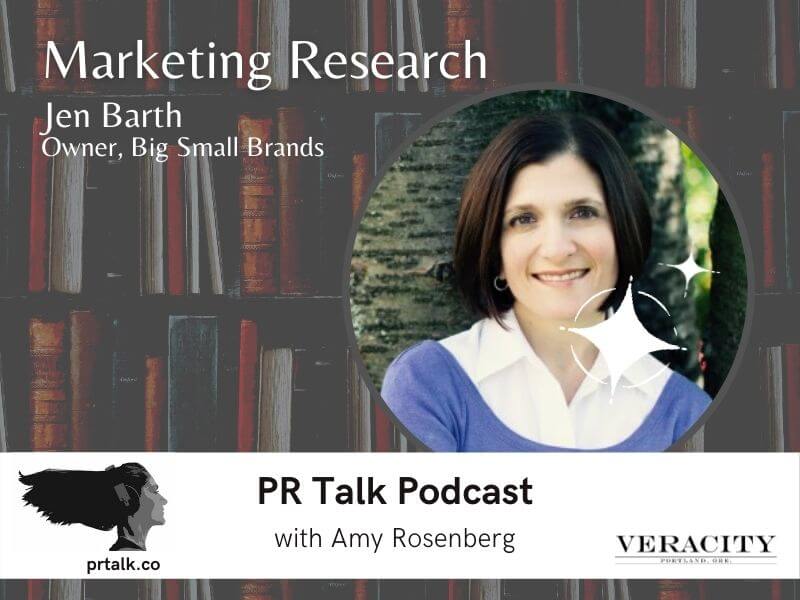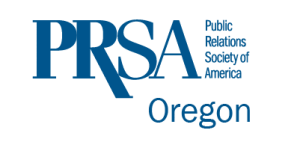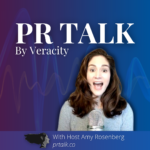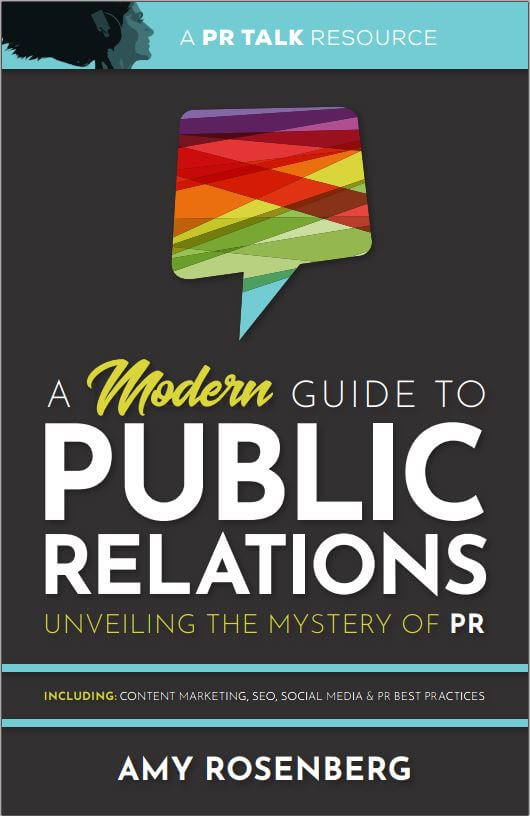How Research Can Collaborate with PR & Marketing
Why PR Research Makes for Better Campaigns
Jen Barth, the owner of Big Small Brands, has held many positions in sales and marketing. She has always been curious by nature and in her first job, which happened to be PR, she asked her boss “we are doing all of this work to get the media to pay attention to us…are we selling any more clothes?” This question ultimately led her to specialize in the research side of marketing, which is what host Amy Rosenberg talked with Jen about on the PR Talk Podcast.
In This Episode, Jen Answers the Following Questions:
What Types of PR Research Are There?
PR research can be done directly (primary research) or indirectly (secondary research). There are many ways to do secondary research including analyzing audience types or personas, consuming the 24/7 news, looking at social media analytics and website metrics, and reading third-party studies. What Jen typically does is first-hand research via surveys, focus groups and one-on-one conversations.
What PR Research Can Help With?
Research can be the foundation of PR and marketing plans, confirm long-held beliefs and dispel assumptions believed to be fact. Some of the topics discussed include:
- Honing in on messaging
- Creating a pitch headline
- Fresh eyes can see things we miss
- Getting a different perspective
- Internal stakeholders hearing that they need to make a change can be hard, but if it comes from a customer, it’s not a personal challenge, but practical information rooted in fact.
- Confirming a gut-check or assumptions
- Sometimes you think you know what to do, but really just need confirmation.
How To Do PR Research?
You want to start by creating a screener, a document that lists the screening criteria to use for the research. Then determine what type(s) of research you should perform. The most common types of primary research include surveys, phone interviews, and in-person (or virtual) focus groups.
Jen says you may want to start by interviewing important internal stakeholders who will either help champion the project or be a potential roadblock. Start to figure out what you already know (or at least think you know) internally and what you do not know. Determine what type of information you can get through research that will be actionable (i.e. what are you going to be able to do with the information?). Jen says that it is great to learn stuff, but if you can’t do anything about it, is it helpful?
You can do expansive quantitative surveys, but Jen recommends focusing on the qualitative research, not the who and the what, but the why and the how. Spending 30 minutes to an hour talking with a few of the right people and asking the right questions is often a lot better than a five-question survey sent to hundreds.
You need to invest in as structured a process as possible, one that also allows for a lot of flexibility with what happens next. Start with rapid-fire interviews, then put the themes into buckets based on the answers (not necessarily the original buckets expected).
“Investing a little bit in the short term, to gather practice information, not only sets you up for success when you have a lot of clarity in your plan but it also allows you to be very flexible and nimble should things change.” — Jen Barth
Also, using a third-party will often get you more direct answers and better insights. Plus having an unbiased third-party resource without an agenda — besides improving your PR and marketing — can lead to better decision making.
Oh Wait, There’s More!
Jen and Amy also discuss how research can help determine why PR or marketing campaigns aren’t working, how demographics can be deceiving, and creating a framework for making decisions on the fly. So click through to listen to the entire episode. As always, you can access more great episodes by subscribing to the PR Talk podcast on iTunes, Stitcher, Google Podcasts, iHeart Radio and Spotify.
About the guest: Jen Barth
Jen Barth is a collaborative, nimble, and forward-thinking leader with experience in the agency, corporate, entrepreneurial and nonprofit sectors. She is the owner and principal of Big Small Brands, a boutique brand and business acceleration consultancy. Jen helps the teams she supports better understand and engage the audiences and communities they serve and grow relationships that drive revenue and impact.
Connect and follow Jen on social media:
This episode of PR Talk is brought to you by PRSA Oregon
Throughout Oregon and Southwest Washington, PRSA provides members with networking, mentorship, skill building and professional development opportunities – whether you are a new professional fresh out of college or a skilled expert with 20 years in the industry. Check out PRSAoregon.org for more information on how membership can help you grow and connect.











